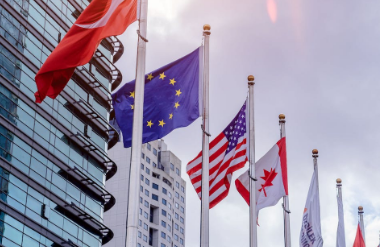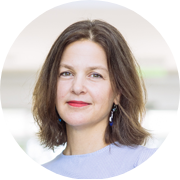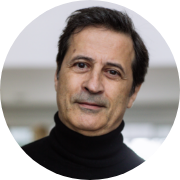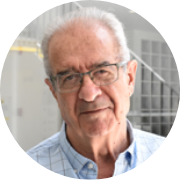En los medios

Drug Traffickers Exploit New Transit Routes Through Argentina
Traditionally northern-bound cocaine is being diverted south to outmaneuver authorities
SALVADOR MAZZA, Argentina—On a recent day in rural Argentina, white bags fell out of the sky onto a farm below, tossed from a small plane passing overhead. Tipped off by a neighbor, police found a mattress, a mirror, 393 kilograms of marijuana and 27 kilograms of cocaine, covered in plastic with a drawing of the Eiffel Tower and the word “Paris.”
Drug traffickers have flown cocaine north from the Andes to Central America and the Caribbean for decades, varying their routes to evade law enforcement. But in a more recent twist, they have been flying south into Argentina from Bolivia, outmaneuvering authorities and turning this largely peaceful country into an international narcotics hub.
“The flights are bringing in cocaine all the time,” said Pablo Gerardo Prado, a commander in Argentina’s militarized border police, as he recently led a patrol of off-road vehicles down a dirt path separating this frontier town from Bolivia, the world’s No. 3 cocaine producer.
Argentina doesn’t produce cocaine, but its porous borders, roads, rivers and ports make it a good transit point. Low chances of prosecution also attract drug dealers, says Patricia Bullrich,Argentina’s security minister.
Since 1999, Argentina has successfully prosecuted only seven money-laundering cases, according to the U.S. State Department’s latest international narcotics report. That record has inspired traffickers from Colombia, Peru and Mexico to buy luxury homes and farmland—which can accommodate clandestine airstrips—to evade tougher controls farther north in South America and secure profitable southern supply routes, officials say.
“In Argentina, drug traffickers found a safe place to invest,” saidGustavo Lozada, a federal judge specializing in narcotics cases. “They also found they could profit from trafficking here.”
Over the past decade, Argentina has become the fifth most important transit point for cocaine to Asia and Europe, according to the most recent World Drug Report from the United Nations.
“Colombian traffickers and Mexican traffickers in Argentina are trying to establish themselves in the region,” said Lizette Yrizarry,deputy chief of operations for the U.S. Drug Enforcement Administration in Washington.
Officials estimate that more than 70 tons of cocaine a year has been passing through Argentina in recent years.
“We are working with the Argentines and with representatives of all these other countries in Latin America to try and stem that trend and not let it explode into something that would then be much more difficult to respond to,” Ms. Yrizarry said.
Traffickers buy small, used airplanes from Miami and strip them down, authorities say. Pilots then fly into Argentina from Bolivia and Paraguay to do midair drops or land on rural roads and makeshift runways. The cargo is then shipped through local ports to cities such as Madrid and Paris.
The problem is so severe that in January Argentine PresidentMauricio Macri declared a national-security emergency and signed a decree allowing jet fighters to shoot down drug flights, a controversial practice already used in Colombia and Venezuela.
Meanwhile, the number of Argentine drug users has likely doubled or tripled since 2000, said Roberto Moro, head of Sedronar, the government’s substance-abuse agency. Drug-related gang violence has also become a bigger problem. By 2014, homicide rates in Rosario, a port city where drugs are exported, had nearly tripled to 21 per 100,000 people—three times the national average—from 2004, according to local and federal data.
In Argentina’s capital last year, 9% of students aged 17 or older had tried cocaine while 45% had used marijuana, according to one study. A comparable study of 12th graders in the U.S. indicated 2.5% and 35% of similarly aged students had tried cocaine and marijuana, respectively.
Argentines are also unique among Latin Americans for consuming large quantities of synthetic drugs imported from Germany and Holland, Ms. Yrizarry said.
The trend prompted Argentina-born Pope Francis to warn the country away from becoming like Mexico, where drug-related killings have left more than 130,000 people dead since 2006.
While the government is toughening its line on drugs, Argentina remains incomparably safer than Mexico, says Juan Gabriel Tokatlian, a professor of international affairs at Torcuato Di Tella University. Mr. Macri could open a Pandora’s box, he says, by pursuing a “war on drugs” approach that in other countries has increased violence and incarcerations but failed to reduce demand for drugs.
Argentine officials, aware of such concerns, say they are cracking down on criminal organizations, not consumers, and sharply boosting funding for drug education and prevention programs.
Argentina’s radars, which have long operated part-time, until recently covered just 17% of the country, leaving blind spots for pilots to exploit. They typically drop off drugs in hard-to-reach areas, giving scouts on the ground six to 10 hours to pick up dropped cargo and evade capture, said Ricardo Toranzos, a federal prosecutor.
Mr. Macri is adding radars, better equipping security forces and increasing international cooperation. In July, the U.S. State Department approved the possible sale of 24 aircraft for $300 million to train pilots and patrol the border.
Argentina is also buying Israeli aerial surveillance balloons and may acquire Awacs-style surveillance aircraft, says Luis Green, who runs Argentina’s border security program.
Argentina’s Congress also looks set to criminalize the misuse of chemical precursors to make synthetic drugs. The proposed law comes some two years after the indictment of former President Cristina Kirchner’s drug czar on charges he facilitated the mass importation of ephedrine, which traffickers in Mexico turned into methamphetamine.
Mrs. Bullrich says the new shootdown rules are already scaring off narco pilots. Between January and April, radars detected 81 potential drug flights, down from 219 during the same period a year ago.
Skeptics say the problem won’t go away soon.
“Neither Macri nor Bullrich fully knows what’s going on,” saidMarcelo Bergman, author of the book “Drugs, Narco-trafficking and Power in Latin America.” “When you hit traffickers in one place, they appear a few months later in another.”
For Luis Aguilar, a city councilman in Colonia Elía, tiny town about 60 miles from the farm where the white bags landed, Mr. Macri is on the right track. “I’ve warned about drug flights for years but nobody paid attention,” Mr. Aguilar said. “We have to stop being so permissive.”
Conocé nuestros programas
Nuestra oferta académica está diseñada para formar profesionales capaces de liderar en ámbitos académicos, políticos y sociales.


Aprendé con
los mejores
Nuestro cuerpo docente se distingue por su rigurosa formación doctoral en las universidades más prestigiosas del mundo. Su alta dedicación y su conocimiento y experiencia internacional los habilitan para desempeñarse exitosamente en distintos ámbitos y proveer a los/as estudiantes de una sólida formación multidisciplinaria.
en Argentina para dictar
clases de grado y posgrado.
Fuente: Ranking Teaching, Research and International Policy (TRIP) International Relations Survey, 2014.
La Di Tella está entre las 150 mejores universidades del mundo en el área de Ciencia Política.
(Fuente: QS World University Rankings 2023)
Conocé a nuestro cuerpo docente

Jennifer Cyr
Ph.D. in Political Science, Northwestern University.

Sebastián Etchemendy
Ph.D. in Political Science, University of California at Berkeley.

Enrique Peruzzotti
Ph.D. in Sociology, New School for Social Research.

Catalina Smulovitz
Ph.D. in Political Science, The Pennsylvania State University.

Hayley Stevenson
Ph.D. in International Relations, University of Adelaide.

Juan Carlos Torre
Docteur en Sociologie, École des Hautes Études en Sciences Sociales.
Novedades
Reuniones informativas
Agenda
Cátedras y centros de investigación
Un espacio académico para el análisis, conocimiento y difusión del país de manera integral. Tiene el propósito de establecer un ámbito plural desde el cual enriquecer el diálogo entre Argentina y Colombia.
Una iniciativa conjunta de la Universidad Torcuato Di Tella, la Embajada de Francia en Argentina y el Instituto Franco Argentino que tiene por objetivo promover el intercambio académico y el diálogo.
de cambios en Cuba
El proyecto "Tiempo de cambios y el nuevo rol de las fuerzas armadas en Cuba" busca informar a actores que sean disidentes y críticos de las fuerzas armadas revolucionarias de Cuba (FAR) de dos maneras diferentes.
Departamento de Admisiones
Contacto


